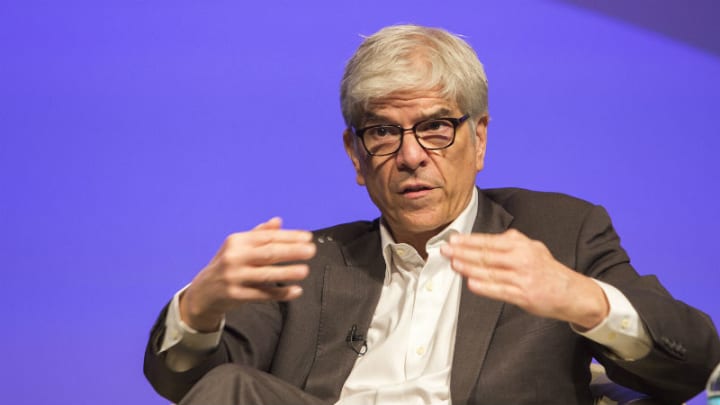
The World Bank’s chief economist raises concerns about murky methodology, Bangladesh and Myanmar hash out a Rohingya repatriation timeline, and democratic freedom reels from a year in crisis. This week in development.
President Trump’s alleged description of Haiti and African nations as “shithole countries” during a White House meeting on immigration last week sparked outrage throughout the developing world. The African Group of Ambassadors to the United Nations held an emergency meeting to consider Trump’s comments and said the group is “extremely appalled at, and strongly condemns the outrageous, racist and xenophobic remarks,” before demanding a retraction and apology. The government of Botswana summoned the U.S. ambassador to the country to “clarify if Botswana is regarded as a ‘shithole’ country.” On Tuesday 78 former U.S. ambassadors to 48 African countries co-signed a letter to Trump, asking the president to “reassess [his] views on Africa and its citizens, and recognize the important contributions Africans and African Americans have made and continue to make to our country.”
World Bank Chief Economist Paul Romer sparked controversy when he called into question changes to the bank’s methodology for creating the “Doing Business” report, a flagship publication that ranks countries according to their investment climates. A Wall Street Journal article cited Romer’s suggestion that these changes might have been politically motivated, with the particular effect of dramatically lowering Chile’s ranking under President Michelle Bachelet of Chile’s socialist party. Romer, writing on his personal blog on Tuesday, sought to clarify his own “unclear comments,” writing, “In a conversation with a reporter, I made comments about the Doing Business report that gave the impression that I suspected political manipulation or bias. This was not what I meant to say or thought I said. I have not seen any sign of manipulation of the numbers published in Doing Business report or in any other Bank report.” Outgoing President Bachelet described Chile’s penalization in the rankings as, “very concerning,” and the bank has committed to undergoing an external review of Chile’s indicators.
Myanmar and Bangladesh have reached an agreement on a two-year process to repatriate Rohingya refugees who fled violence and persecution by government security forces. However, displaced members of the Rohingya ethnic group say they have received no information about how that agreement will ensure their safe return to Myanmar and the restoration of their rights, land, property, and citizenship. An estimated 740,000 people have fled Myanmar to Bangladesh since Oct. 2016, alleging gross human rights violations and abuse. Under this agreement, Myanmar has reportedly agreed to accept 1,500 Rohingya each week — a number that will be reviewed in three months in order to accelerate the repatriation effort toward completion within two years, Bangladeshi foreign secretary Shahidul Haque told the BBC. Aid groups have raised concerns that all repatriation must be voluntary and comply with international standards. Rohingya members charge that the conditions that would allow their safe and willing return to their country of origin have not yet been met.
Four cranes that can speed the delivery of life-saving humanitarian assistance to victims of Yemen’s war have arrived in the country. The cranes, which were paid for by the U.S. Agency for International Development back in 2016, can cut the time it takes to offload humanitarian shipments in Yemen’s Hodeidah Port from one week to three days, USAID Administrator Mark Green told Voice of America. The World Food Programme, which purchased the cranes with the U.S. funding, first tried to deliver them about a year ago but was told that the permit for the ship carrying them had been revoked. The agency had been pushing to get the cranes delivered and operational ever since. At the same time, Saudi Arabia’s agreement to temporarily lift a blockade of the port is scheduled to expire on Friday, without a clear resolution for extending humanitarian access into the future, Amy Lieberman reported for Devex. “We have had no official confirmation about what will happen as of the 19th of January, which leaves Yemen in a highly unpredictable situation and vulnerable to more inflation and more hunger,” Suze van Meegen, an adviser with the Norwegian Refugee Council, told Devex.
Global democracy is in decline, according to the latest “Freedom in the World” report published this week by Freedom House. The 2018 report finds that, “democracy faced its most serious crisis in decades,” with 71 countries suffering “net declines in political rights and civil liberties,” while only 35 registered gains. The report also pointed to a retreat by the United States in 2017 from its “historical commitment to promoting and supporting democracy,” according to Michael Abramowitz, president of Freedom House. “Two long wars in Afghanistan and Iraq and a global recession soured the public on extensive international engagement, and the perceived link between democracy promotion on the one hand and military interventions and financial costs on the other has had a lasting impact,” Abramowitz concluded.
